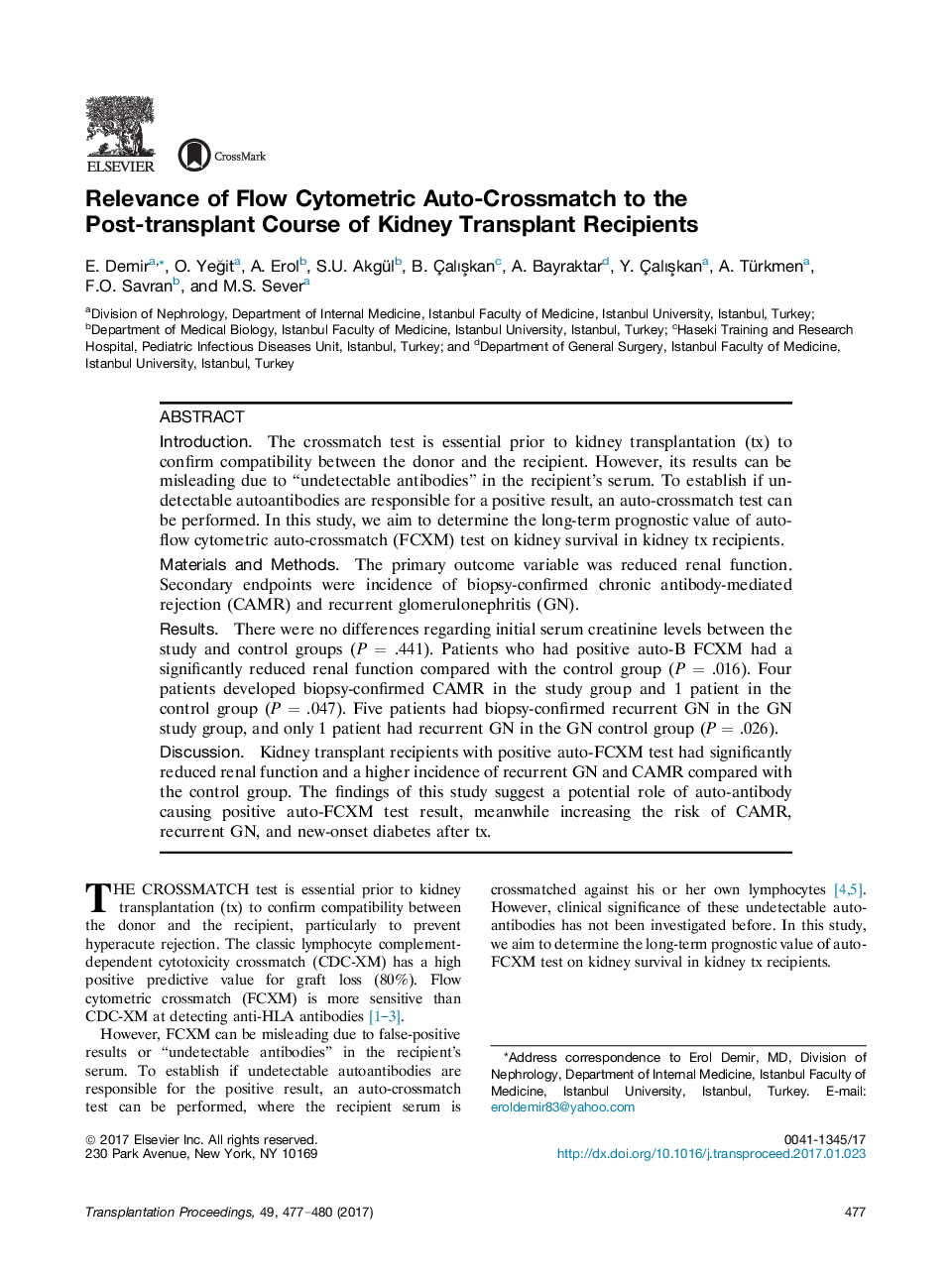| Article ID | Journal | Published Year | Pages | File Type |
|---|---|---|---|---|
| 5728859 | Transplantation Proceedings | 2017 | 4 Pages |
IntroductionThe crossmatch test is essential prior to kidney transplantation (tx) to confirm compatibility between the donor and the recipient. However, its results can be misleading due to “undetectable antibodies” in the recipient's serum. To establish if undetectable autoantibodies are responsible for a positive result, an auto-crossmatch test can be performed. In this study, we aim to determine the long-term prognostic value of auto-flow cytometric auto-crossmatch (FCXM) test on kidney survival in kidney tx recipients.Materials and MethodsThe primary outcome variable was reduced renal function. Secondary endpoints were incidence of biopsy-confirmed chronic antibody-mediated rejection (CAMR) and recurrent glomerulonephritis (GN).ResultsThere were no differences regarding initial serum creatinine levels between the study and control groups (PÂ = .441). Patients who had positive auto-B FCXM had a significantly reduced renal function compared with the control group (PÂ = .016). Four patients developed biopsy-confirmed CAMR in the study group and 1 patient in the control group (PÂ = .047). Five patients had biopsy-confirmed recurrent GN in the GN study group, and only 1 patient had recurrent GN in the GN control group (PÂ = .026).DiscussionKidney transplant recipients with positive auto-FCXM test had significantly reduced renal function and a higher incidence of recurrent GN and CAMR compared with the control group. The findings of this study suggest a potential role of auto-antibody causing positive auto-FCXM test result, meanwhile increasing the risk of CAMR, recurrent GN, and new-onset diabetes after tx.
